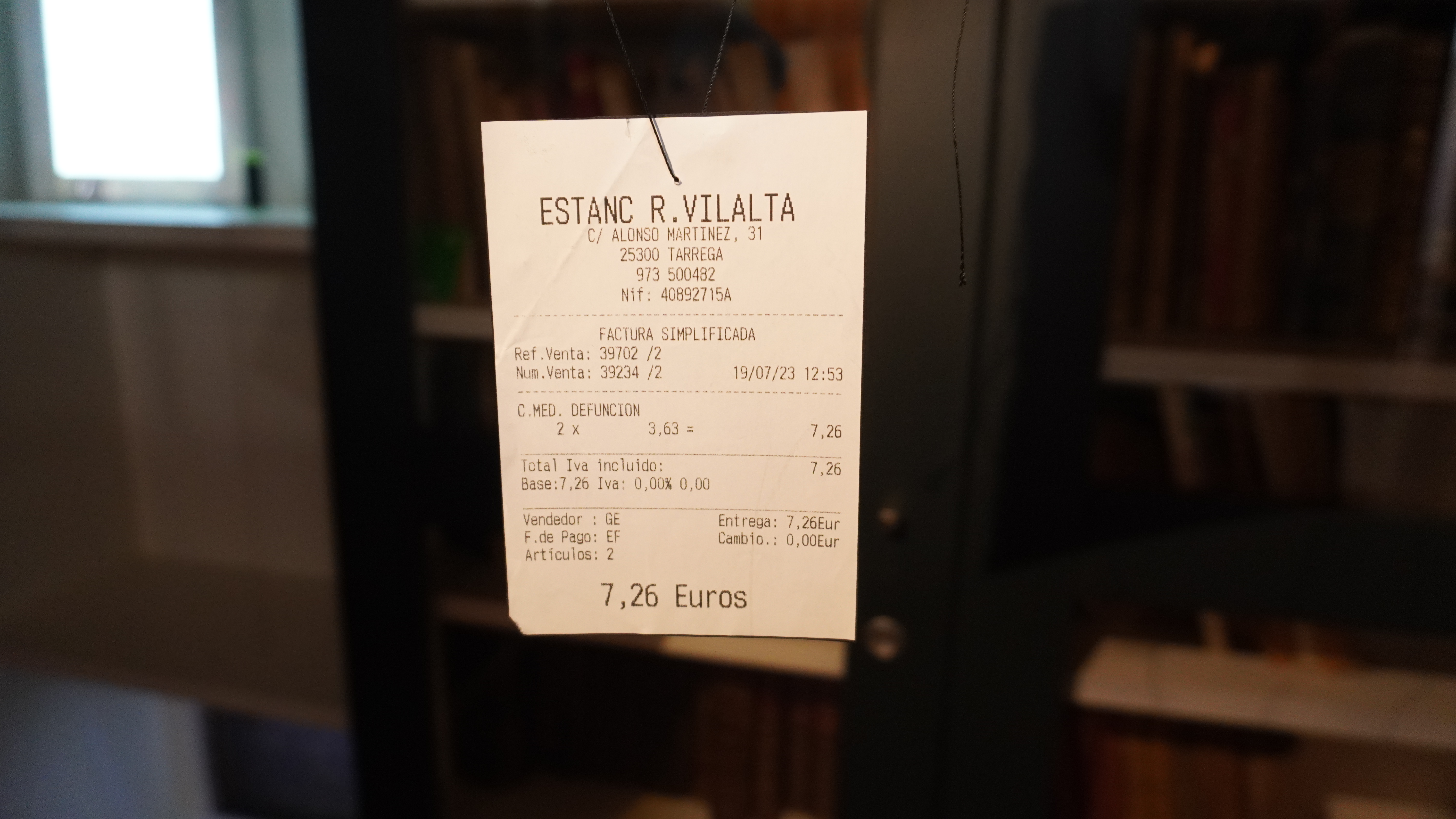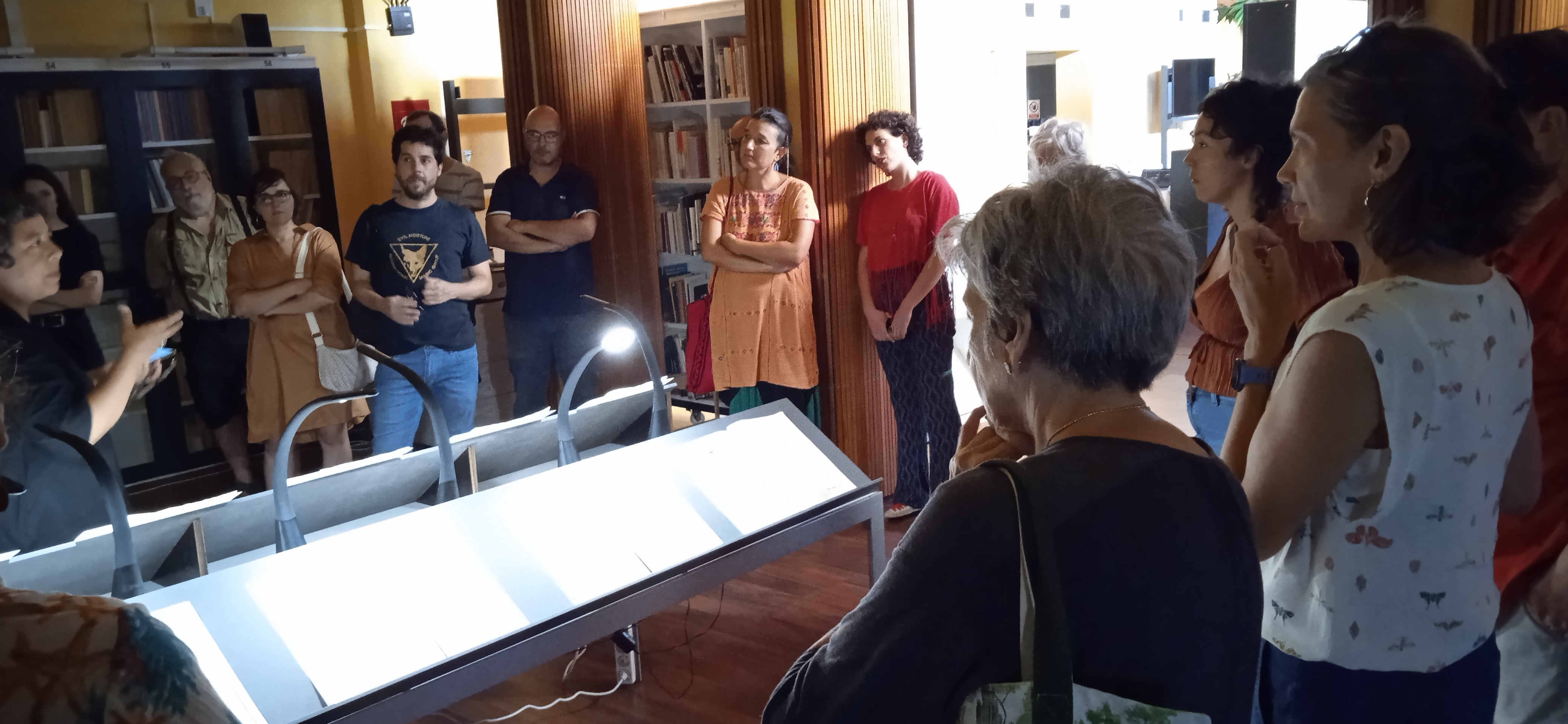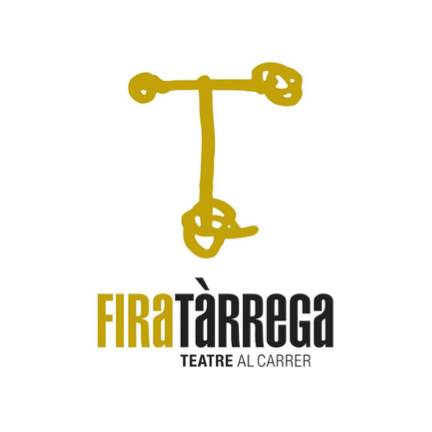 artists
artists
Death on paper
The emotional life of documents that administrate death. by Cristina Maldonado
02/07/2024
Death on paper: The emotional life of documents that administrate death, is a project proposed by Cristina Maldonado, Associate Artist from Czech Republic, to the Urgell Regional Archive in the city of Tarrega.
It is part of the artistic research platform Invisible Bonds: Performativity in the Everyday of Death hosted in Spain by the partner Fira Tárrega, and developed within IN SITU, the European Platform for artistic creation in public space, in the frame (UN) COMMON SPACES, co-financed by the Creative Europe program of the European Union.
Invisible Bonds research is based on performative dialogues: collaborations and conversations that turn into artistic devices. Involving places, documents, practices, objects, people, materials and local energies to explore, deepen and become intimate with the theme of dying and how it is practiced locally. By learning about the relationship to death, this research aims to grasp ongoing practices and propose imagined ones that can open the possibility of a less hostile relationship with one’s finitude.
Death on paper is a concept designed specifically for the resources offered by the city of Tárrega and specifically the local Archive. And it is a middle step in the process of creating a performative piece for Fira Tarrega’s edition 2004. Cristina focused on the documents available in the archive: obituaries, medical death certificates and administrative records of the cemetery. They were the starting point for a series of investigative and interpretive trajectories that linked the documents to what Cristina observed and heard in Tárrega on a day-to-day basis. Thus, the research was a constant coming and going from paper to life, from past to present, from the materiality of the document to the materiality of death.
“Thanks to the close community in Tárrega, I had access to the work of specialists and local people who nurtured imaginative games and creative collaborations with interviews, research, personal materials and points of view. This essay is a compendium of materials and accounts of what I experienced and learned in the summer of 2023 accompanied and guided by generous Targarians.”
The essay Performative Dialogues. Death on paper: The emotional life of documents that administrate death* was published in URTX Humanities Magazine of Urgell Vol. 38. And contained QR codes with videos, interviews and performative sound pieces.
Extract
“It all started with something Oriol told me. The blue paper has no name, or rather he does not remember it. As director of the local funeral home, Oriol has done things like the generations that preceded him, he knows perfectly the procedures of death, he states all the documents that are required when dying. I count 11 without including obituary, will, advance or funeral wills, depending on the case there may be more. The blue paper is the route between the funeral home and the court: Oriol's familiarity with the process and with this document reaches the point of not remembering its name, because he no longer needs a name to identify it, because it is a familiar face that he sees every day: the blue paper. Oriol's familiarity with the blue paper fascinates me and makes me envious. This man knows what to do even in the case of death. Quite the opposite of what I have experienced, the same as any other person who doesn’t care to make an extra effort to find out about death or dying. Because these topics are not told or taught to anyone. Wouldn't it be better to have some familiarity with this before it happens?
I have asked those around me, who provides the medical death certificate form, but neither the Civil Registry, nor the Museum nor the Archive have been able to answer. But everyone agrees that the funeral home is the only one that handles these documents and could know. I realize that knowing what is required as soon as someone dies is not public knowledge. You have to ask the specialist. As if dying was a rare thing to happen.
I ask Oriol to solve this mystery for me and I am overcome with emotion when he tells me that he buys it at the tobacco store across the street. (!) Yes, there with the cigarettes, the pencils and the lottery he also buys that verdict paper that legitimizes that someone has ceased to exist. Just as natural and familiar as when your pen runs out of ink overnight and you have to buy a replacement.
I did not expect to hear that this very decisive certificate was available to everyone. But in fact Oriol cannot guarantee it to me, he does not know if they sell it to him in droves because it comes from the funeral home or if it can be sold to any person. Even doctors get it through the funeral home.
A ray of hope. What if I, as a civilian, a foreigner, without certification of anything related to the subject, could acquire this certificate? If I could have access to this piece of paper that defines whether someone is alive or dead? And why would it be so hard to believe that anyone could get it? Yes, after all, this certificate is just a form that is worthless without being filled out and signed by a doctor.
But this does not take away the importance of having access to this document. Well, what would it mean to have it? It involves understanding and participating in a series of relationships. It implies that I know a little about how dying is organized, that I know about something that is required and where to find it. So I don't pretend that I don't see the certificate, and therefore, that I don't see death.”
On July 19th 2023, Cristina asked to buy in the cigar shop a death certificate. The clerk repeatedly said she had never been asked this before and that she doesn't have it but then kindly called another nearby cigar shop if they had them. Cristina then arrived at the second cigar shop a few minutes later and bought two death certificates each costing 3.63 EUR, an extra one in case we made a mistake, she thought. The clerk said that Cristina was the first person ever to buy a death certificate aside from the funerary clerks.
Few days later, the purchase receipt, the certificate and the audio documentation of the visit to the cigars shops were exhibited as part of La Muerte en Papel exhibition in the Regional Archive of Urgell that same month.
Audio journal- conversation with Oriol and trip to the cigar shops. In Spanish
*In this essay, the Mexican artist Cristina Maldonado makes a compendium of materials and accounts of what she experienced in the summer of 2023 in Tàrrega during her residency Death on Paper: The emotional life of the documents that administrate death as part of the residency program ACUR 2023 in the Urgell Regional Archive. In this residence, Maldonado starts from the premise that the document that manages death has an emotional charge and creates an emotional reality, a way of feeling and relating to the facts. The projects described here are the result of a performative dialogue that began with archive documents and continued with conversations with specialists and local people with whom there were imaginative games and collaborations, exchange of personal materials and points of view that culminated in a final exhibition at the end of residency. With these narratives Maldonado reveals part of her creative process and her particular way of relating the found information to artistic forms that activate reflection on a taboo subject. In an introduction, seven chapters and an epilogue she tells us about her constant coming and going, from paper to life, from past to present, from fact to fiction, and from the materiality of the document to the materiality of death.
 © Carles Quevedo Garcia
© Carles Quevedo Garcia
